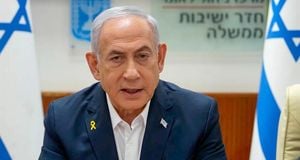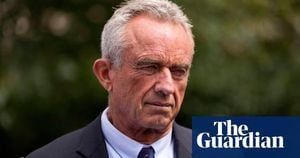Israeli airstrikes and military operations have recently escalated tensions between Israel and Hezbollah, resulting in significant casualties and casting shadows over efforts to broker a ceasefire. The situation remains precarious, as negotiations seek to establish peace amid rampant violence.
On November 22, reports emerged of deadly Israeli bombardments across southern Lebanon, including the outskirts of Beirut, which resulted in the death of at least five medics. The strikes appear to be part of Israel's intensified military campaign against Hezbollah, and such actions are exacerbated by the recent clashes between ground troops and the Iran-backed militant group.
The conflict’s roots can be traced back more than one year to the previous escalation after Hezbollah began firing rockets at Israel, supporting its ally Hamas during the war in Gaza which erupted in October 2023. Israeli Defense Minister Israel Katz has characterized these military operations as necessary for Israel’s security, especially following the rocket attacks directed at its southern regions.
During the recent assault, Hezbollah retaliated by firing multiple rockets at Israeli positions, with its spokesperson asserting their military efforts are to counteract Israeli aggression. Various local sources indicate the violence has led to the displacement of thousands and resulted in over 3,500 fatalities, including numerous medical personnel from rescue services associated with Hezbollah.
Despite the bloodshed, diplomatic attempts to negotiate peace have not completely stalled. US mediator Amos Hochstein traveled from Beirut to meet with Israeli officials, expressing cautious optimism as details of the proposed ceasefire terms began to surface. The envisioned agreement would include provisions for mutual withdrawals: Israeli forces would retreat from southern Lebanon, allowing Hezbollah units to reposition themselves north of the Litani River, with additional cooperation from the Lebanese Army and UN peacekeeping forces.
Conversely, reports suggest the proposed ceasefire faces challenges; certain Israeli officials hinted at remaining gaps between Israeli and Lebanese positions. A senior defense official from Israel noted significant progress but emphasized the need for both sides to remain committed to resolving outstanding issues.
Hezbollah’s leadership appears open to negotiations after facing substantial losses due to the bombing campaigns. The situation remains complex, with Hezbollah’s new leader, Naim Qassem, acknowledging the importance of serious discussions moving forward. Meanwhile, the humanitarian impact remains dire, with rescue operations hampered by continued airstrikes, and evacuation orders have only added to civilian distress.
The socio-political climate of Lebanon is also under strain, as the possibility of returning to peace remains hindered by distrust and the long history of conflict. Community leaders in Lebanon have voiced the necessity of restoring their authority and cooperation with international peacekeeping forces amid skepticism about the presence of Hezbollah.
Further complicate matters, the latest round of fighting coincided with significant regional tensions, including demonstrations of military might from Iran and the altering geopolitical alliances within the Middle East. Onlookers remain wary of how the actions taken during this crisis will impact future military and diplomatic engagements.
Despite the grim outlook, some Lebanese officials believe changes to existing US proposals may garner more favorable terms for their country. The prerequisites suggested involve immediate Israeli withdrawal and improved self-defense capabilities for Lebanese forces, framing future engagements more securely for undisplaced Lebanese nationals. Diplomatic channels remain open, yet peace is contingent on continued dialogues, execution of agreed terms, and ensuring the welfare of all citizens affected by the war.
The international community watches closely as humanitarian organizations report increasing aid worker casualties reaching record highs and food insecurities worsening alongside violence raging on. The potential long-term effects of such strife on Lebanon's population raise alarm bells, hinting at crises yet to come.
At the moment, Israeli military operations continue unabated, with analysts arguing they are strategically aimed partly at undermining Hezbollah's military capabilities and pressuring the group to commit to peace under terms favorable to Israel. The stakes are high, and as discussions evolve, the permanence of this combat remains uncertain.
Recent skirmishes show Hezbollah's resolve, with claims of operational success reported following exchanges of fire. Scenarios of increased provocations from either side can lead to more significant damages, nullifying any advances toward ceasefire.
So, the question remains: can both sides reach common ground? With lives hanging on this delicate balance, the pursuit of lasting peace will be tested as escalations continue to challenge any cooperative efforts.
Now, as international players engage through diplomacy, the ever-present air of distrust surpasses simple ceasefire intentions. The heart of the conflict lies deep within the socio-political dynamics of the region, where history fuels every decision and every action.
Hope flickers dimly as peace talks persist, yet the road to resolve is unpredictable, filled with potential setbacks and pitfalls. Resolving this multi-layered conflict will demand time, patience, and perhaps even forgiveness.



